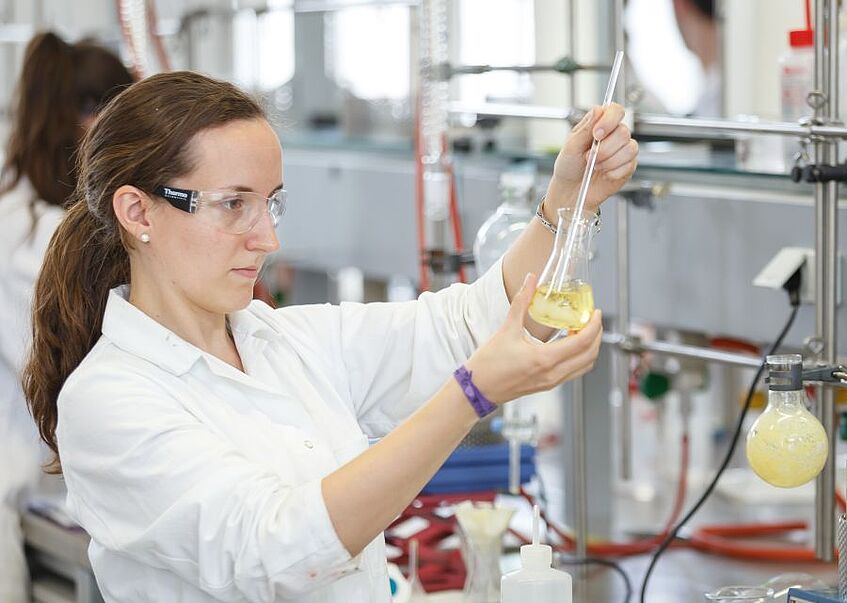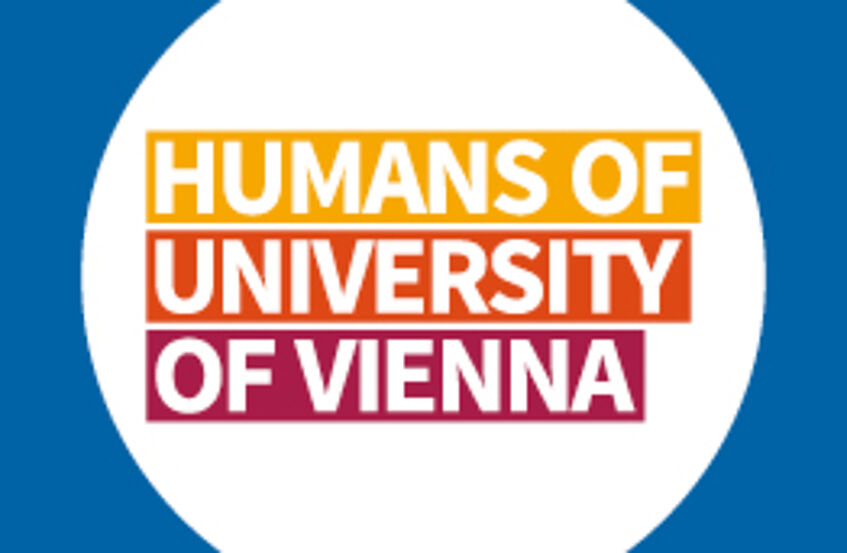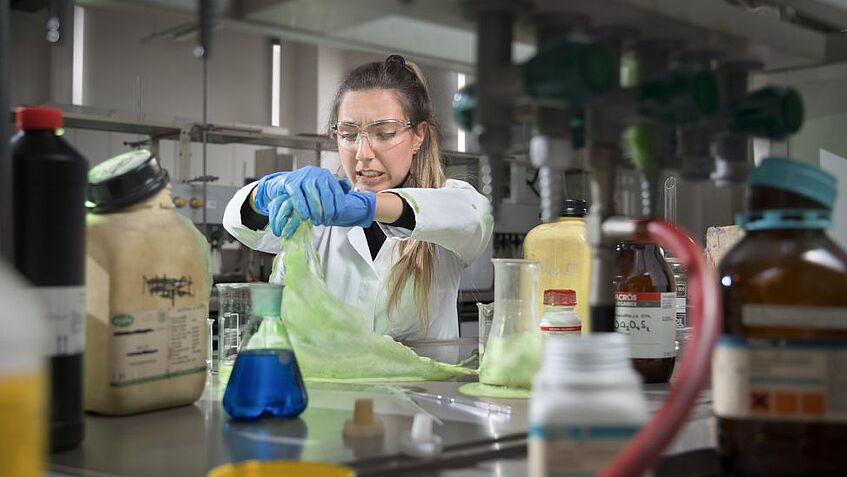Chemistry (Bachelor)

© Universität Wien / derknopfdruecker.com
The bachelor’s programme in Chemistry provides students with a fundamental academic education and practical training in the most important areas of chemistry (organic and inorganic chemistry, analytical chemistry, physical chemistry and biological chemistry). In addition, students acquire basic knowledge in other related subject areas (mathematics, physics and biology) that are necessary for a thorough understanding of the discipline.
Bachelor of Science
Degree Programme Code: 033 662
6 semesters / 180 ECTS credits (including 15 ECTS credits of extension curricula)
Language: German
Facts & Figures
- Students: n.a.
- Graduates in the last academic year: n.a.
- Number of semesters needed for graduation (median): n.a.
Data updated on: 03.12.2024
Attention
Instruction Language German
Please note that the instruction language of this programme is German. To start the degree programme, you need to hold a certificate of German proficiency on C1 level.
Admission procedure
Getting Informed
Study programme
The bachelor’s programme consists of an Introductory and Orientation Period (STEOP) and compulsory modules relating to the subdisciplines of chemistry. To successfully complete the programme, students have to write a bachelor’s thesis.
Five concepts
which you will deal with during your studies:
- Spectroscopy
- Analytics
- Organic and inorganic syntheses
- Physical and theoretical chemistry
- Biological-chemical systems
... and many more.
Humans of #univie @ Chemie
Magdalena is talking about her studies at the University of Vienna.
Overview of the programme structure & topics
Here you find the current offer of courses for this programme to gain better insight into the topics and structure. For more information please click on the respective level.
After Graduation
Graduates can pursue a career in the following fields:
- chemical industry: research, development, production, quality control
- non-chemical industry: quality control, analytical laboratory, emission control
- public sector: federal and state institutes of agriculture, environmental protection, etc.
- private laboratories: clinical diagnosis, environmental analysis, etc.
Graduates' Perspective on the Degree Programme
Graduates ...
- say that this degree programme receives the grade: 2.4 (good)
- rate the level of difficulty as: 4.3 (high)
→ These results are basd on feedback from 123 graduates.
*You can find further assessments of the degree programme from its graduates’ perspective in the graduate survey of the bachelor’s programme in Chemistry graduation survey (in German).



